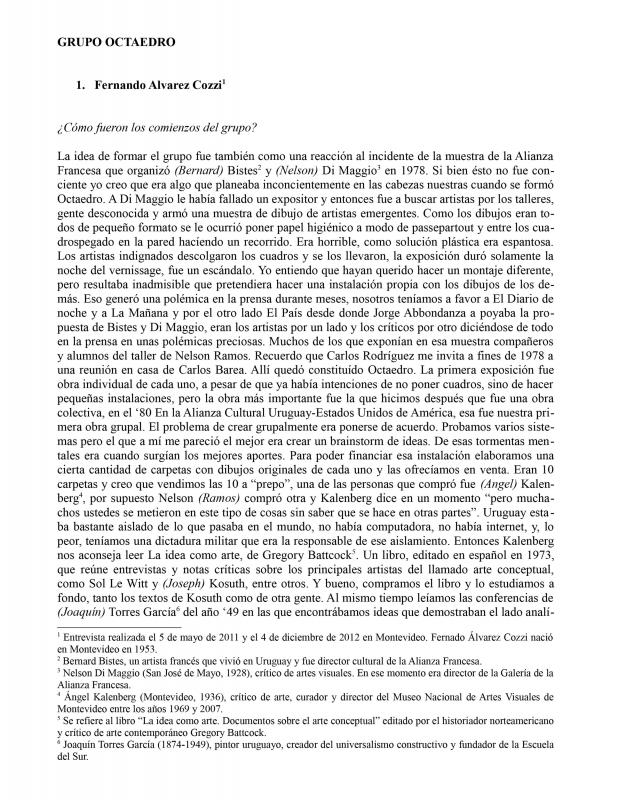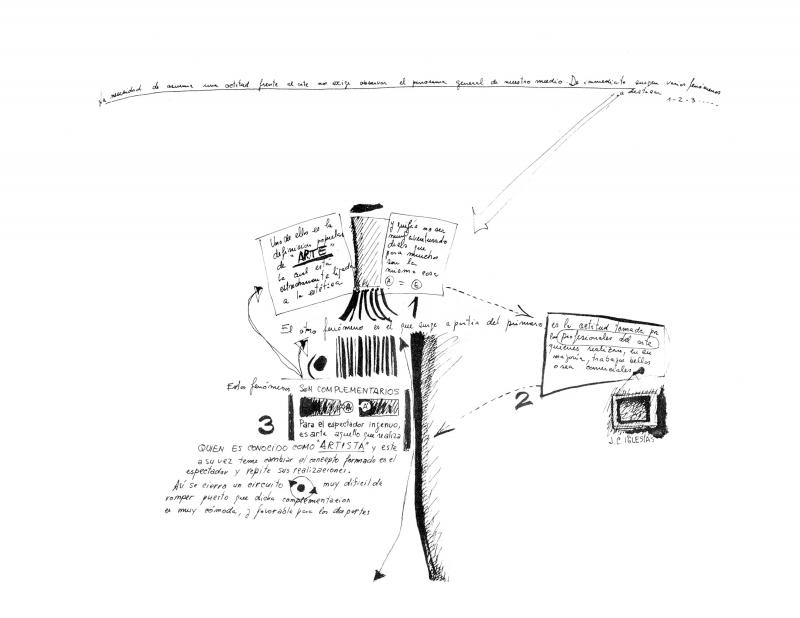Fernando Álvarez Cozzi (b. 1953), a member of the Octaedro group (that was founded in late 1979, mainly by graduates of the Taller Nelson Ramos), had several one-man shows and group exhibitions during the 1970s. In his work he presented himself as being part of an artists’ group (he used “we” in his texts to suggest a plurality of opinions). He also vainly explored opportunities to create independent and countercultural art at a time when Uruguayans lived in silence born of fear in a repressive authoritarian environment [see in the ICAA digital archive by May Puchet “Entrevista a Fernando Álvarez Cozzi” (doc. no. 1259780)]. He is skeptical of what he sees around him, and disheartened by the cultural paralysis of 1980 and the lack of any moral stimulus for innovative creativity, which he describes as culturally restricting and asphyxiating. He nonetheless thinks an artist should pursue individual goals if he knows what he wants when the local scene is unsupportive. In his critique he refers to the “majorities” which he portrays and chastises as an “ignorant audience,” including those who “bury art,” audience, critics, and art galleries.
The document mentions (and disapproves of) the opinion expressed by the critic Egon Friedler (b. 1932) about the “cinematography of dance,” a border experimental genre. Álvarez Cozzi was active in this genre and won a prize at the Festival de Danza (1979) organized by the Cinemateca Uruguaya and the Comité Uruguayo de Danza. Friedler applauded the public spectacle (simply because it was a spectacle) while dismissing more selective, independent works such as those presented by the Octaedro group. The document presents examples of another text by the artist Juan Carlos Iglesias [see “Octaedro Informa. Textos y dibujos de Juan Carlos Iglesias” (doc. no. 1260374)], who was also a member of the group, and who also speaks of the political and existential “blockade” experienced by young artists in the early 1980s.


